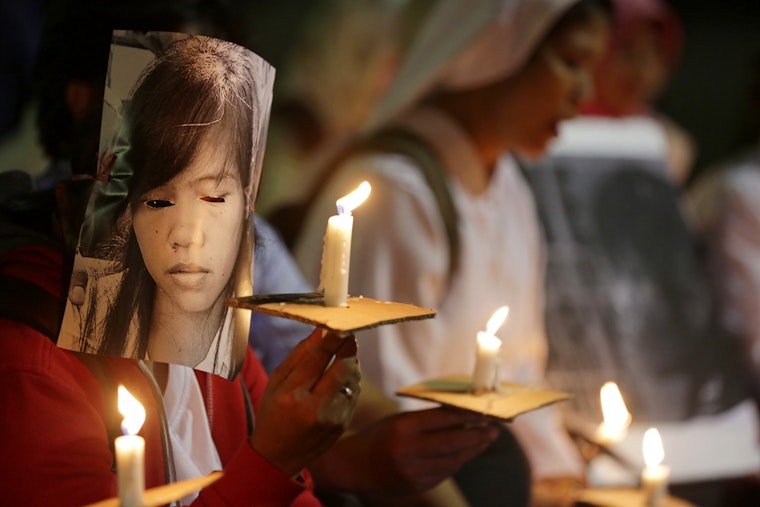Academics Come Out in Force Against Indonesia’s Drug Crackdown
By Claudia Stoicescu & Naomi Burke-Shyne

Indonesian President Joko Widodo has used his short time in office to enforce a brutal war on drugs. In December 2014, just two months after being sworn in, Widodo declared a state of emergency on drugs and vowed to reject requests for clemency related to drug offenses. The president has acted with chilling efficacy—14 people have been executed for drug-related offenses since he made this pledge.
Now, shocked by the measures taken by the state, a group of academics from Indonesia’s top universities have rallied to stand with civil society experts and call for an evidence-informed response to drugs in Indonesia. This call was published as an open letter in the world’s most prominent medical journal, the Lancet, and received extensive international and local media attention. “As researchers, scientists, and practitioners we have grave concerns the government is missing an opportunity to implement an effective response to illicit drugs informed by evidence,” the group wrote.
Sadly, Indonesia’s punitive response to drugs is not novel or unusual. Because drug use remains complex, stigmatized, and widely misunderstood in many societies, repression and crackdowns are often used to score political points—even if they don’t yield results. In fact, international research [PDF] shows that punitive law enforcement and criminalization of people who use drugs have failed to reduce the prevalence of drug use, drive people away from services, and help fuel the HIV and hepatitis C epidemics.
In the case of Indonesia, the president’s man-of-the-people popularity plummeted in response to a host of policy missteps that marred his first three months in office. Perhaps policy advisors believed an iron-fist approach to drugs would allow the president to recover some of his lost popularity. Perhaps they decided that drug policy, being both a national and international issue, had the additional benefit of creating space for grandstanding on Indonesian sovereignty (also popular with voters). But in light of the significant backlash, perhaps it is most plausible to suggest there was no strategy at all—just ill-informed advisors.
At an international level, execution of foreign nationals resulted in the unprecedented recall of ambassadors by the Dutch, Brazilian, and Australian governments; condemnation from UN Secretary-General Ban Ki-moon; and widespread protests by Indonesian and global civil society.
Among the chaos and violence of the executions is the heartbreaking story of 42-year-old Rodrigo Guilarte, who suffered from schizophrenia and bipolar disorder. Just moments before his execution on April 28, Rodrigo turned to his appointed spiritual advisor, Father Charlie Burrows, and asked, “Am I being executed?”
Indonesia’s criminal code contains provisions to protect people with mental illness, specifically prohibiting their prosecution. However, Rodrigo’s legal team was blatantly disregarded.
Most tragically, international attention on Indonesia’s use of the death penalty for drug offenses has overshadowed daily violations flowing from the alleged “state of emergency” on drugs. Advocates are documenting an increase in punitive law enforcement activity in 2015, including raids by the National Narcotics Board—the country’s main anti-drug agency—forced drug testing, detention, compulsory treatment, and other coercive measures, including extortion and pressure on health facilities to disclose personal details and medical records of suspected drug users. A video online shows Narcotics Board officials interrupting the national drug user community congress and asking that members with a history of drug use report their peers for mandatory rehabilitation in return for the equivalent of $20.
The diverse coalition behind the Lancet letter brings new strength to the national discussion on drug policy. Leading the coalition is veteran HIV researcher Professor Irwanto of the HIV/AIDS Research Centre at Atma Jaya University. Professor Irwanto believes the current punitive approach risks frightening drug users away from the treatments they need. “The current drug war approach has been a proven failure around the globe, even causing more harm than good,” he stated.
The open letter welcomes the Widodo government’s commitment to evidence-based policymaking and calls for the government to:
- scale back punitive strategies that have been found to be counterproductive and expand voluntary harm reduction and drug treatment programs including opioid substitution therapy, needle and syringe programs, HIV treatment, and care for people who use drugs;
- invest in the collection of better quality data on the scale and nature of drug use in Indonesia, without which an effective and appropriately targeted response cannot be developed; and
- form an ad hoc, independent committee on drug use comprising relevant national stakeholders including policymakers, academics, practitioners, and drug user community representatives to review available drug-related data, set priorities, recommend evidence-informed actions, and monitor progress.
We, along with the coalition, await a response from President Joko Widodo, and hope for a return to the human rights policies that formed a key part of his election platform.
Harm Reduction International, a grantee of the Open Society Foundations, is working to end the death penalty for drug offenses around the world.
Claudia Stoicescu is the principal investigator for Perempuan Bersuara and an advisor to the Indonesian Network of People Who Use Drugs.
Until October 2017, Naomi Burke-Shyne was a senior program officer working with the Law and Health Initiative and the International Harm Reduction Development Program.

